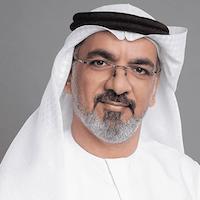Growing up, literacy was simple. If you could read and write, you were prepared for the world. But today, the world moves faster and communicates in formats far beyond text. For a teenager in Seoul, Jakarta, or Lagos, literacy now includes fluency in algorithms, fluency in AI, and perhaps most importantly, fluency in storytelling.
Nowhere is this shift more visible than in Asia, where young content creators are reshaping how the world sees, hears, and understands them. They’re not just joining the conversation — they’re leading it.
From cultural export to digital authority
It’s no exaggeration to say that Asia’s youth are shaping the future of content, one lyric, video, and animated frame at a time. This creative surge isn’t just a content boom; rather it’s a redefinition of cultural influence, driven by storytelling that is local in voice and global in reach. And it is exactly this kind of movement that BRIDGE, a global platform for media, content, and entertainment, seeks to support—by spotlighting authentic voices and building cross-cultural trust through shared creativity.
For decades, Asian countries were viewed largely as consumers of global media. Today, from Tokyo to Manila, they are leading. Japan continues to expand the global impact of anime, with its animation industry generating $22 billion in 2023, over half from international markets. South Korea has turned culture into a national export—K-pop and K-drama alone brought in $12.4 billion in 2021, with projections nearing $36 billion by 2030. Meanwhile, China’s homegrown platforms like Douyin, Bilibili, and WeChat connect over a billion users to local creators and self-sustained content economies.
Now, Southeast Asia is emerging as the next wave. With a median age under 30 and near-universal mobile access, creators in Indonesia, Vietnam, and the Philippines are producing content that blends humour, heritage, and identity. According to the e-Conomy SEA 2023 report by Google, Temasek, and Bain, Southeast Asia’s digital economy is projected to reach $295 billion by 2025. Furthermore, Filipino youth are reviving folklore on TikTok; Vietnamese influencers are bridging cultures through bilingual content; Indonesian educators are teaching languages through comedy. Far from fleeting trends, these are blueprints for how digital literacy becomes cultural power.
A new platform for trust, creativity, and cooperation
But with growing influence comes new responsibility. AI is already reshaping workflows—Japan is piloting AI dubbing, Korean studios are creating virtual idols, and Singaporean newsrooms are deploying automated subtitles. These innovations expand reach but also raise complex ethical questions. Generative AI brings with it risks of misinformation, hallucination, bias, and erosion of trust. According to the Reuters Institute Digital News Report 2024, trust in news across Asia ranges sharply—from 55 percent in Hong Kong to 31 percent in South Korea. The faster content moves, the more essential credibility becomes. But how you achieve that is a question yet unanswered.
That’s why this December, we are convening BRIDGE Summit 2025—the world’s largest event for media, content, and entertainment—in Abu Dhabi from December 8 to 10. It will gather global media leaders, cultural and creative content makers, and decision-makers from around the world to explore how we can co-create an ecosystem where storytelling empowers, technology enables, and trust endures.
BRIDGE’s vision is to establish a global platform that strengthens effective cooperation in the fields of media, content, and entertainment, and enhances constructive communication in sectors that shape public awareness, cultural identity, and collective creativity.
Asia’s digital storytellers must have a space at this table. Because if they have proven one thing in recent months, it’s that when young creatives are trusted and supported, they don’t just contribute to the narrative—they transform it. And in a world where traditional narratives around economies and societies are quickly ageing, that can only be a good thing.

Dr. Jamal Al Kaabi serves as the Deputy Chairman of BRIDGE as well as the Director General of the National Media Office, bringing a unique blend of medical expertise and public health knowledge to his roles. Holding a master’s degree in public health from the prestigious Johns Hopkins University, Dr. Al Kaabi’s educational background has laid the foundation for his successful career in public service.
With over 15 years of experience in government, Dr. Al Kaabi has established himself as a seasoned leader and administrator. His career trajectory includes notable positions such as Director of Customer Care and Corporate Communication at the Health Authority in Abu Dhabi, Director General of the Abu Dhabi Executive Office, and Undersecretary of the Department of Health, a role he assumed in 2021.
During his tenure as Undersecretary, Dr. Al Kaabi demonstrated exceptional leadership skills, successfully overseeing the operational response to the COVID 19 pandemic in the capital. His expertise and strategic vision played a critical role in mitigating the impact of the pandemic.
In addition to his distinguished career in public service, Dr. Al Kaabi has also made notable contributions to the media sector, having worked as a TV presenter for several prominent networks, including MBC, ADTV, and Emirates TV, from 2012 to 2019.
Throughout his career, Dr. Al Kaabi has consistently demonstrated a commitment to excellence, leadership, and public service. His unique blend of medical expertise, public health knowledge, and media experience makes him an invaluable asset to the National Media Office.
TNGlobal INSIDER publishes contributions relevant to entrepreneurship and innovation. You may submit your own original or published contributions subject to editorial discretion.
Featured image: Joshua Hoehne on Unsplash

